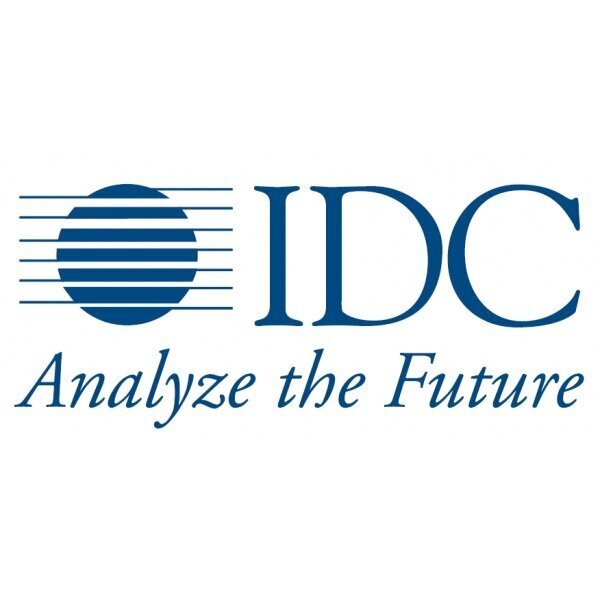Hybrid work, once thought to be a temporary means of enabling enterprises to continue business operations through the COVID-19 pandemic, has become a mainstay for the global work landscape. To enable these hybrid work models, organizations are investing in a wide range of technologies and services to increase workforce productivity and enable new, more agile ways of working.
Read MoreReal-time monitoring and the ease of data retrieval for advanced physical and digital security drive the need for security sensors. According to Frost & Sullivan’s recent analysis, Sensor Technologies Impacting the Physical and Digital Security Market, by 2025, there will be a significant increase in the use of contactless sensing technologies for physical and digital security applications, including cameras, LiDAR, and terahertz (THz) image sensing.
Read MoreGartner, Inc. highlighted the top trends that will impact technology providers through 2025. These trends reflect three overarching themes: businesses increasing their reliance on technology, new opportunities emerging through technology and the impact of external macro forces.
Read MoreAs IT organizations across the country assess their options for an economically uncertain 2023, one thing appears certain. Progress toward enterprise application rationalization in general -- and SAP modernization in particular -- will continue apace regardless of how the business landscape evolves over the next few months.
Read MoreThe popular notion might view the rail industry as a laggard compared to auto or high-tech manufacturing when embracing Industry 4.0. Yet railways are increasingly dependent on sophisticated connected systems to enhance efficiency and customer satisfaction. With the advent of connected online systems and the convergence of Operational Technology (OT) and Information Technology (IT) systems, network and data-sharing security between IT and OT systems is proceeding to become an integral component of safety, providing new market opportunities in the rail, freight, and transit sector.
Read MoreThe Semiannual Big Data and Analytics Software Tracker published by International Data Corporation (IDC) expects current geopolitical developments to have a mild impact on market growth, with a positive outlook for the future. The trend of companies relying on data manipulation to analyze, predict, and swiftly adapt to changing market conditions is here to stay, being fueled by ongoing supply chain and demand shift challenges.
Read MoreImproved safety requirements across industries will drive the non-destructive testing (NDT) equipment market, inflating the demand for integrated software, according to Frost & Sullivan’s recent analysis of the global NDT software industry.
Read MoreWhile blockchain is most commonly associated with cryptocurrencies and nonfungible token (NFTs), the promise of the technology in IoT has not been lost by many service providers and enterprises. In fact, 40% of enterprises surveyed say that blockchain is a “priority for the future” for their IoT deployments according to Omdia’s recent report, Blockchain’s role in IoT.
Read MoreZero trust is top of mind for most organizations as a critical strategy to reduce risk, but few organizations have actually completed zero-trust implementations. Gartner, Inc. predicts that by 2026, 10% of large enterprises will have a mature and measurable zero-trust program in place, up from less than 1% today.
Read MoreAccording to the International Data Corporation (IDC) Worldwide Quarterly Enterprise Infrastructure Tracker: Buyer and Cloud Deployment, spending on compute and storage infrastructure products for cloud deployments, including dedicated and shared IT environments, increased 24.7% year over year in the third quarter of 2022 (3Q22) to $23.9 billion.
Read MoreCommunication service providers (CSPs) have made large strides over the last few years as they look to leverage their underlying infrastructure to climb the digital value chain by delivering cloud-enabled integrated network services. This paradigm, ‘network-as-a-service’ (NaaS), is a more flexible way for enterprises to consume critical and non-critical network services.
Read MoreThe prospects of inflation and a global recession are a common variable that will influence how network service providers (NSPs) in different regions assess their strategic customer premises equipment options (CPE) for 2023. That said, local market conditions will determine the pace at which new technologies are deployed and new services adopted for connected home applications, according to Mercedes Pastor, Senior Vice President of VANTIVA's Global Customer Unit, in an interview with journalists during CES 2023.
"There have always been significant regional differences in how consumers receive connected home applications. In 2023, however, we will likely see more stratification across geographies as NSPs assess the specific impact that major economic and geopolitical events have on their markets," she says.
Dramatic shifts in consumer behavior, driven by concerns about inflation and recession, will create a dramatically different market for Pay TV and over-the-top (OTT) streaming service providers as 2023 unfolds, according to Jon Kirchner, chief executive officer of Xperi.
Subscribers, he says, are revisiting digital entertainment budgets that ballooned in the aftermath of the global pandemic and are developing strategies to better control investments in content, online gaming and other digital experiences.
Read MoreParks Associates research finds that even as download speeds increase for US internet households, value-added services and the quality of experience are increasingly more important factors in how subscribers evaluate their BSP.
Read MoreThe most effective data and analytics leaders focus on creating business value, nurturing data and analytics talent, and changing culture, according to Gartner, Inc. “The role of the chief data and analytics officer (CDAO) is growing in influence as it becomes required for organizations to transform data into business value,” said Carlie Idoine, VP Analyst at Gartner.
Read MoreOn the backs of a tough economic environment and rising prices, International Data Corporation (IDC) has reduced its outlook for augmented reality (AR) and virtual reality (VR) headsets for the remainder of 2022 and beyond. Global shipments for AR and VR headsets will decline by 12.8% in 2022, dropping to 9.7 million units. Growth is expected to return in 2023 as shipments are forecast to jump 31.5% year over year. Sustained growth of more than 30% is also forecast for the next several years culminating in 35.1 million units shipped in 2026.
Read MoreReturnable Transport Assets (RTAs) have long been a target for IoT solution providers and adopters alike. Wide-Area Network (WAN) technologies have seen significant shipments into this market over the past two years. Global technology intelligence firm ABI Research forecasts that the WAN RTA tracking market will reach 117.3 connections by 2027.
Read MoreWorldwide IT spending is projected to total $4.5 trillion in 2023, an increase of 2.4% from 2022, according to the latest forecast by Gartner, Inc. This is down from the previous quarter’s forecast of 5.1% growth. While inflation continues to erode consumer purchasing power and drive device spending down, overall enterprise IT spending is expected to remain strong.
Read MoreAccording to Parks Associates’ latest research, annual sports OTT subscription revenue in the United States was $13.1 billion in 2022 and will almost double to approximately $22.6 billion in 2027, a 73% increase over the next five years. The new industry report OTT & Sports: Services and Strategies for Growth examines key trends in sports content and provides an overview of the pay-TV sports media landscape, OTT sports services, direct-to-consumer trends, and the sports fan viewing experience.
Read MoreSmart city solutions empower city governments to acquire distributed city data and unify it while offering a platform to provide innovative solutions for effective city management. Frost & Sullivan’s recent analysis, Smart City Solutions Growth Opportunities, finds that the sector is evolving from aiming to create traffic management solutions to converging with industry participants creating solutions for data simulation, the sharing economy, social media, and mass transit.
Read More

















